
Conjugación Catch 🔸 Verbo inglés en todos los tiempos y formas Conjugar en pasado, presente y
The past tense form is "caught" and past participle form is "caught." To learn how to use these words, refer to the sentence examples provided below. Sentence examples for past tense of "catch" Infinitive: I catch the ball every time it makes its way toward right field.
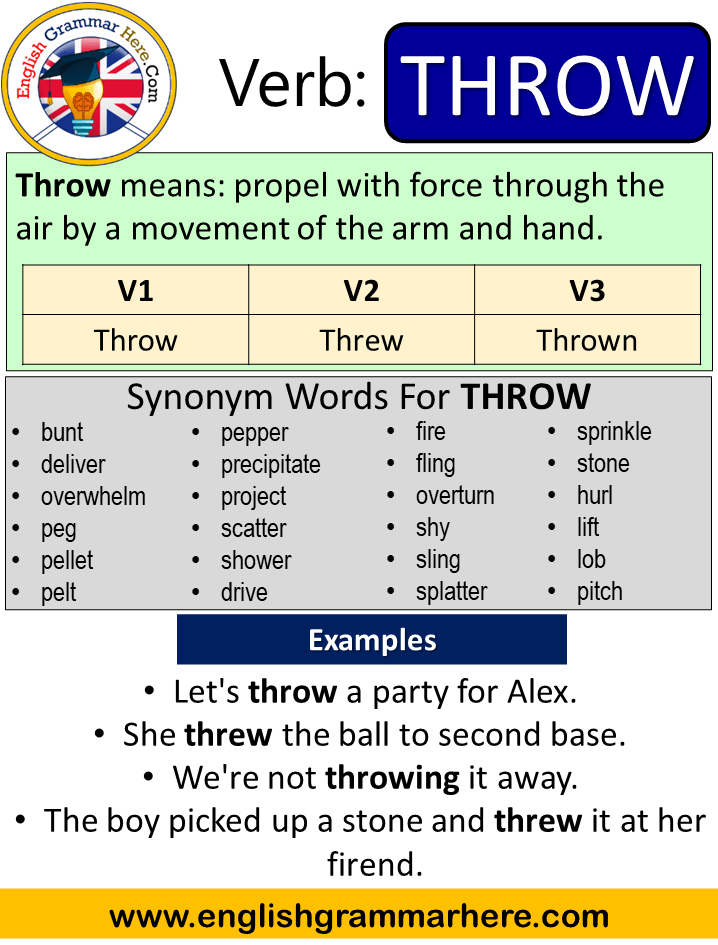
Past Tense Of Catch / Past tenses revision worksheet Example sentences with catch, caught
Past Tenses Present Tenses Future Tenses Most Common Irregular Verbs The two most common irregular verbs in English are "be" and "have." These pages give more details about these two verbs: the verb "to be" the verb "to have" Here are the next 10 most common irregular verbs in English: see, say, go, come, know, get, give, become, find, and think

Irregular Verbs The Past Tense Of Catch/Caught, Bring/Brought... Online Spellcheck Blog
I caught the ball. She caught the flu. They caught the thief. To form negative sentences in the past tense, we use the auxiliary verb "did" and add "not" before the base form of the verb. For example: I did not catch the ball. She did not catch the flu. They did not catch the thief.

Catch Verb Forms, Past Tense Of Catch Past Participle & V1 V2 V3 V4
Verb Table for catch Continuous tenses Conditional Imperative Impersonal Simple tenses Present Past Present Perfect Past Perfect Will -Future Going to -Future Future Perfect Return to the dictionary Top of page Found an error? We appreciate your feedback. Click here! Continuous tenses Present Past Present Perfect Past Perfect Will -Future

Catch, Catched, or Caught? What's the Correct Past Tense of Catch?
The past tense form is "caught" and past participle form is "caught." Understanding verb tenses The general grammar rules that govern past tenses are as follows. The simple past tense form is created by adding a -ed or -d affix to the root word of the verb. Some verbs use a -t variation where they end in a -t.

Past tense of 'Catch' and other Forms of Verb "CATCH" YouTube
Past Tense of Catch Verbs are one of the first subjects we need to study at the stage of learning English. But since some verbs are irregular verbs, we must memorize their V2 and V3 forms.
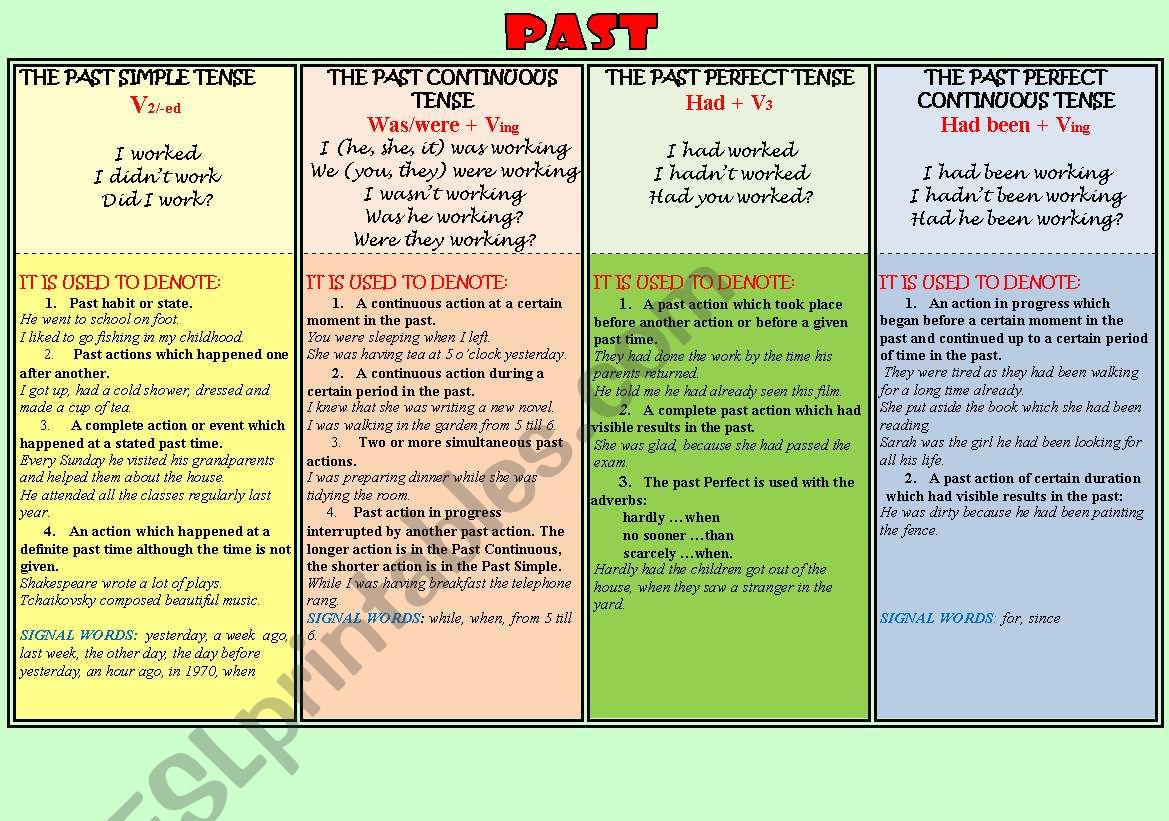
Past Tense Of Catch / Past tenses revision worksheet Example sentences with catch, caught
Paris Français (FR) Aug 30, 2006 #1 i heard someone say "i've catched up". Is this wrong or you can use this form nowadays? cas29 Senior Member Milan Italy Canada/English Aug 30, 2006 #2 Not to my knowledge. Caught is the past of catch. I've caught up. TimLA Member Emeritus Los Angeles English - US Aug 30, 2006 #3 hamlet said:

Using CATCH in English English Study Page
In the case of 'catch', both its form in past simple and past participle is 'caught' (pronunciation 'COT', barely). I hope I have answered your question satisfactorily. The answer is: Helpful ( 9) 💡. Interesting ( 3) 😄. Funny ( 0) 🤔.

languagepluspty Here are some common irregular verbs... Facebook
The past tense of the verb "catch" is "caught", and the past participle is "caught". Verb Tenses Past simple — catch in past simple caught (V2) . Future simple — catch in future simple is catch (will + V1) . Present Perfect — catch in present perfect tense is caught (have/has + V3) .

Simple Past Tense of Catch
You/We/They catch a ball. Simple Past Tense. I caught a ball. He/She/It caught a ball. You/We/They caught a ball. Simple Future Tense. I will/shall catch a ball. He/She/It will catch a ball. You/We/They will/shall catch a ball.
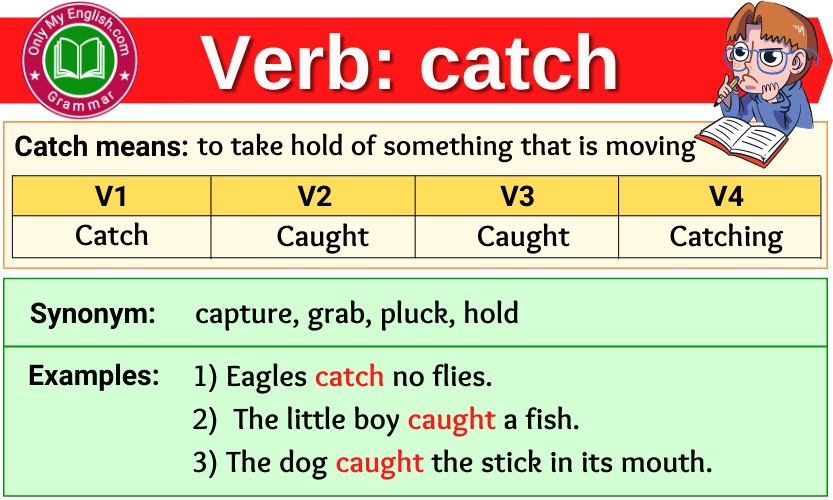
Catch Verb Forms Past Tense, Past Participle & V1V2V3
regular model: work verbs ending in -e: like catch - model verb Verbs that follow this model: reteach teach Firefox and Chrome users: install a shortcut (Firefox or Chrome) then type "conj catch" in your address bar for the fastest conjugations. catch

Verbs Irregular Past Tense Verb Sentence Drills D including bought, caught, taught Banter
past tense of catch is caught. Catch verb forms Conjugation of Catch Simple / Indefinite Present Tense He/She/It catches . I catch. You/We/They catch. Present Continuous Tense He/She/It is catching. I am catching. You/We/They are catching. Present Perfect Tense He/She/It has caught. I have caught. You/We/They have caught.
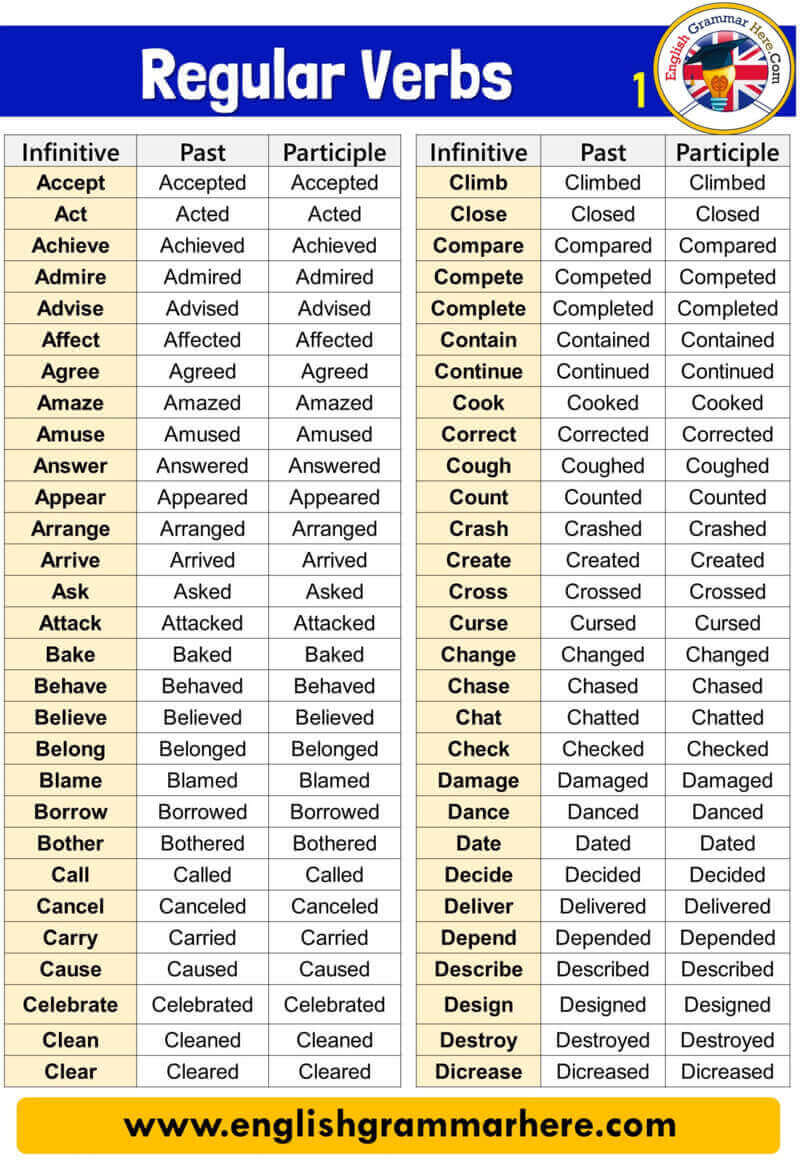
Past Participle Of Catch / IRREGULAR VERBS LIST PRESENT PAST PAST PARTICIPLE Caught is the
What Is The Past Tense For Catch? We know that "Let" in past tense is lookalike to its original verb, but catch past tense is "caught", which can be spelled C-A-U-G-H-T while the base form spelling C-A-T-C-H. The same goes with the past participle of catch. Back again, "catched" is incorrect in English.
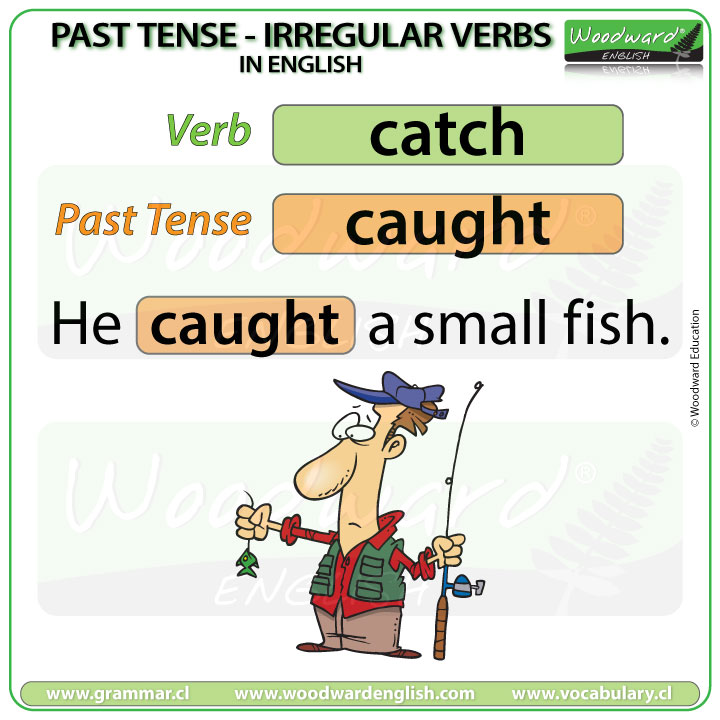
Past Tense of CATCH in English English Grammar Lesson
Funny ( 1) 🤔 Confusing ( 0) English Tutor Tutor 3 years ago Catch is an irregular verb. So the past participle, and the past simple, are not formed by adding Ed like regular verbs such as walked and talked. Catch has an irregular form - caught.

Catch Past Tense Verb Forms, Conjugate CATCH
The past tense of these words contains au! to catch - caught - caught; to teach - taught - taught . Acknowledgement. This simple rule is, by no means, linguistically thorough or motivated. From a linguistic point of few, these irregular words and their past tense forms can be described by allomorphy.

Past Tense Of Catch / Past tenses revision worksheet Example sentences with catch, caught
Kenneth Beare Updated on January 15, 2020 This page provides example sentences of the verb catch in all tenses including active and passive forms, as well as conditional and modal forms. Uses of Catch The verb catch is often used with ball sports: See if you can catch this ball. I'll throw you the ball and you catch it.